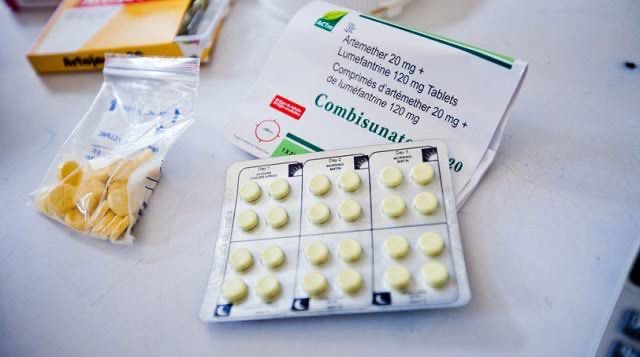A file picture of malaria drugs
The federal capital territory administration (FCTA) has distributed one million anti-malaria drugs for children under the age of five in the nation’s capital.
Speaking at the presentation of the drugs to public hospitals in Abuja, Adedolapo Fasawe, the FCT mandate secretary for health services and environment secretariat, said various steps are being taken to ensure quality and affordable healthcare, particularly for vulnerable groups.
Fasawe said Nyesom Wike, the FCT minister, is committed to addressing the healthcare challenges of residents.
“This initiative is particularly focused on making healthcare more affordable, especially for those registered under the FCT Health Insurance Scheme (FHIS), who will receive malaria medication free of charge,” NAN quoted her as saying.
Advertisement
“FCT was among the first states to contribute counterpart funding to the Islamic Development Bank (IDB) grant under the IMPACT Project, enabling the FCT to access the anti-malaria medication.”
Fasawe said in addition to the one million doses of malaria preventive drugs, the project is providing resources to support hospital staffing and community health advocacy efforts.
The mandate secretary also signed a memorandum of understanding (MoU) with NISA Premier Medical Group, managers of Garki Hospital.
Advertisement
She said the MoU is aimed at making comprehensive healthcare services more accessible to residents.
She added that the agreement, though renewable, could be terminated by either party with a 90-day notice if expectations were not met.
“This flexibility ensures that both the government and the private sector are held accountable and can maintain the highest standards in healthcare delivery,” she said.
Speaking about the items distributed to the FCT hospitals, Fasawe said the administration is introducing new policies to enhance healthcare quality and stricter hygiene protocols to prevent the spread of infections.
Advertisement
“For instance, certain healthcare workers in our hospitals will not be found in mufti,” she said.
“They will now be required to wear sterile, disposable gowns instead of their personal clothing, a move aimed at reducing the risk of hospital-acquired infections.”
Add a comment








